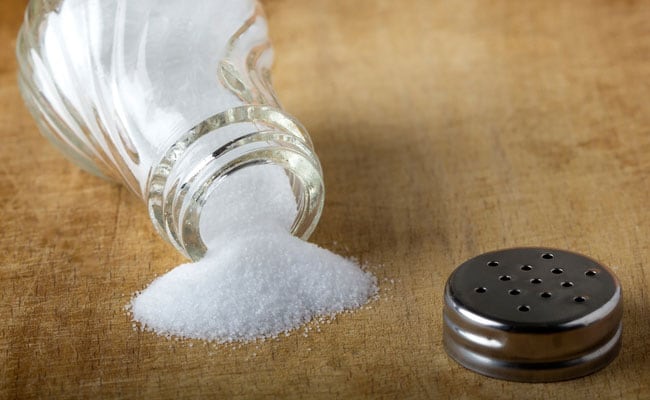
- Consuming too much salt through food could be harmful
- Frequent urination is a classic sign that you are consuming too much salt
- Consuming too much salt can leave you feeling thirsty most of the time
If you are used to adding more salt to your food every now and then, this one may come to you by surprise! A recent study published in the International Journal of Epidemiology reveals that consuming too much salt through food could be harmful for overall health. According to this study, an inappropriate technique of consuming and estimating sodium could account for paradoxical findings of others. Experts suggest that sodium is a hidden component and it is difficult to measure. Therefore, it is difficult for a person to estimate how much sodium he or she consumes in a day. The best way to measure is through sodium excretions. Researchers say that it is easy to estimate the sodium intake with the help of a spot test. This test would check the salt content in a person's urine sample. Sodium intake, however, is likely to change every day. So the best way to go about it is to check sodium levels on multiple days.
Also read: Celebrity Nutritionist Nmami Explains Benefits Of Eating Salt-Free And How To Do So
While salt is something you cannot have your food without, it is necessary to keep a check on how much salt you consume. Consuming too much salt can have serious negative effects on your health. It increases your blood pressure and some studies suggest that it is linked to cognitive decline as well. Research shows that on an average, our daily salt intake should be 6 grams. But most people consume 7.2 grams of salt every day.
Also read: A Dangerous White Toxin We Eat Daily - No Its Not Salt Or Sugar!
Here are 6 serious signs that you are consuming too much salt.
1. You need to urinate a lot
Frequent urination is a classic sign that you are consuming too much salt. Most of the time, you may feel an urgent need to wake up in the middle of the night to urinate. However, it is a symptom of many other conditions like UTIs, type 2 diabetes and an overactive bladder. Take a test be sure of what exactly the root cause is. Nevertheless, consuming too much salt could be a reason for it.
Also read: Pink Himalayan Salt - Does It Have Any Health Benefits?
2. Persistent thirst
Consuming too much salt can leave you feeling thirsty most of the time. This happens because foods with high sodium content mess with your body's fluid balance. The best way to make up for this is to drink lots of water. Your body continues to give you a signal that it needs more water to restore salt balance in your body.
3. Swelling in strange places
Consuming too much salt can give you swelling in different parts of the body. This could be a reason why you feel bloated in the morning. The swelling can be felt on the fingers and around the ankles. This swelling is caused by excessive fluids in the body's tissues and is known as edema. Edema is believed to be a symptom of an underlying health condition or a sign of the fact that you are consuming too much salt. Simple solution for this is to cut down on your sodium intake.
Also read: Cut Down On Salt And See The Benefits For Your Heart
4. You find food bland and boring
Do you feel the need to add more salt to your food every now and then? Do you continuously find food bland and boring? Well, that's probably because you are used to eating too much salt. Over time, your taste buds adapt to that flavor and that is where your need to add more salt to food comes from.
Also read: 5 Simplest Tricks To Reduce Water Retention
5. Frequent mild headaches
Do you experience mild headaches every now and then? Chances are that these headaches are dehydration-induced. Consuming too much salt is likely to give you headaches in short intervals due to dehydration. Drink lots of water to beat these headaches.
Also read: Top 5 Pressure Points For Easing Headaches
6. You crave for salty foods
When your taste buds adapt to salty flavors, it craves for the same again and again. You suddenly feel the need to eat salted peanuts, chips and other salty treats.
Disclaimer: This content including advice provides generic information only. It is in no way a substitute for qualified medical opinion. Always consult a specialist or your own doctor for more information. NDTV does not claim responsibility for this information.
Track Latest News Live on NDTV.com and get news updates from India and around the world

